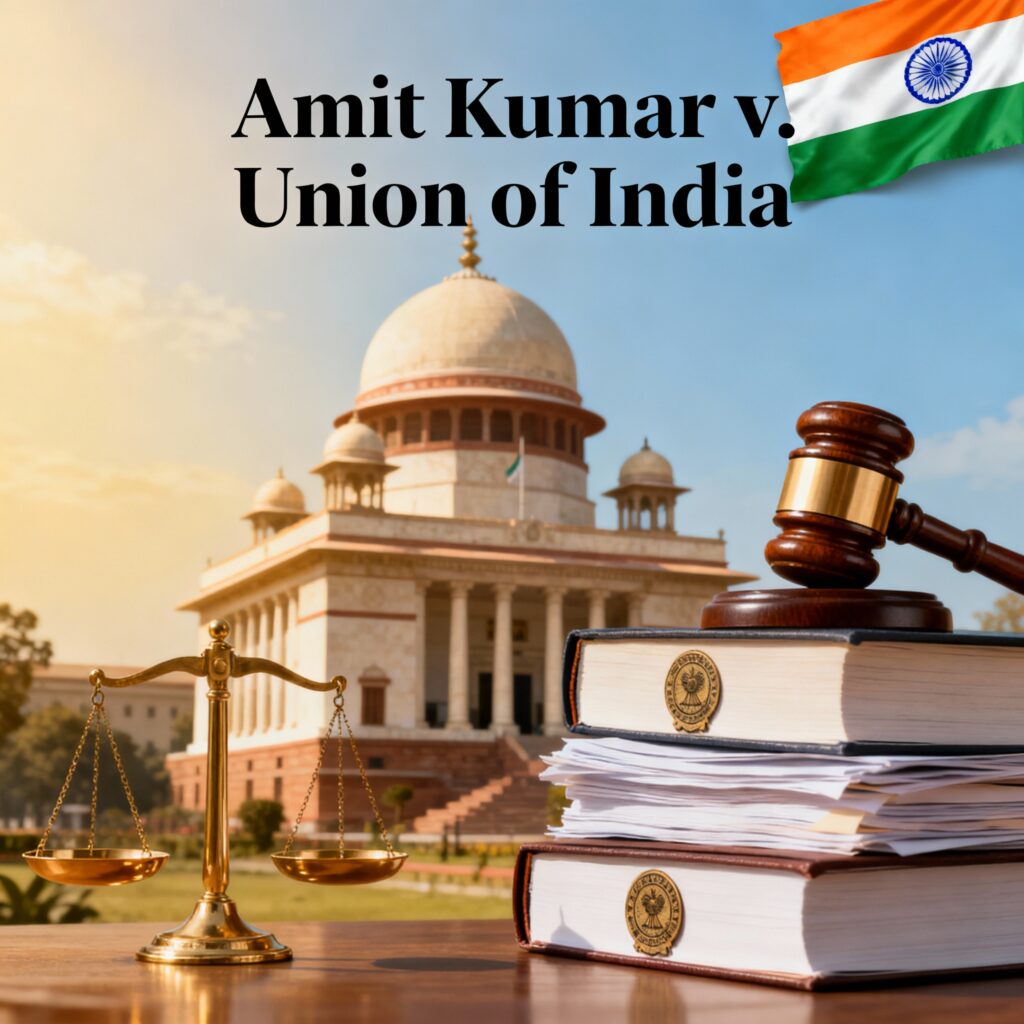Published on: 22nd October 2025
Authored by: Christopher Benjamin Chukwuemeka
University of Lagos
FULL CASE NAME : Louisa Carlill v Carbolic Smoke Ball Company.
CITATIONS : [1982] EWCA Civ 1, [1983] 1 QB 256 (CA).
COURT : Court of Appeal of England and Wales.
BENCH : L.J Nathaniel Lindley Baron, L.J Charles Synge Christopher Bowen, L.J Archibald Levin Smith.
DATE OF JUDGMENT : December 7, 1892
RELEVANT STATUTES/KEY PROVISIONS : Principles of English contract law : Advertisements, Conditions, Insurance, Offer and acceptance, Wagering contracts.
Common law doctrines on unilateral contracts.
BRIEF FACTS :
The defendants, Carbolic Smoke Ball Co. made a product called the “smoke ball” and claimed it to be a cure for influenza and a number of other diseases. The smoke ball was a rubber ball with a tube attached, filled with carbolic acid, which was to be inserted into the user’s nose and the ball would be squeezed at the bottom to release the vapors. The Company published advertisements in the Pall Mall Gazette and other newspapers on November 13, 1891, stating that it would pay £100, to anyone who got sick with influenza after using its product according to the instructions provided with it. The advert further stated that the company had demonstrated its sincerity by placing £1000 in a bank account to act as the reward. The claimant, Louisa Elizabeth Carlill saw the advertisement, bought one of the balls and used it three times daily for nearly two months until she contracted the flu on 17 January 1892. She claimed £100 from the Carbolic Smoke Ball Company.
The defendants contended that they could not be bound by the advert as it was an invitation to treat rather than an offer on the grounds that the advert was: mere ‘puff’ and lacking true intent; that an offer could not be made ‘to the world’; the claimant had not technically provided acceptance; the wording of the advert was insufficiently precise; and, that there was no consideration, as necessary for the creation of a binding contract in law.
ISSUES :
- Whether the advertisement for the Carbolic Smoke Ball constituted a legally binding offer?
- Whether Mrs. Carlill’s actions amounted to acceptance of the offer?
- Whether there was sufficient consideration to form a valid contract?
- Whether an intention to create legal relations could be inferred from the advertisement?
ARGUMENTS :
Counsel for the defendants, H.H. Asquith QC and Herman William Loehnis made three submissions. Firstly, that there was no contract, because Carbolic had not intended to create an obligation enforceable by law upon themselves, shown by the wide terms in which the advertisement was expressed. The advertisement said the “reward” was for anyone getting influenza “after having used the ball”, which could mean any time in someone’s life. It would be absurd to impose an obligation on the company for some who got the flu years after using the ball. Moreover, contracting the flu was not something in the plaintiff’s control.Second, even if a contract existed, it should be void because of the Gambling Act 1845[1], which said “wagering contracts” (gambling contracts) were unlawful and void.Third, even if it were contract and not a wagering contract, it still would be void because it would be an insurance contract that failed to follow the prescribed form of stating people’s names.
Counsel for the plaintiff William Graham and John Patrick Murphy QC responded to the submissions by first arguing that there was a contract. The contract was a warranty to prevent disease that sounded in liquidated (money) damages. The advertisement was an offer. It was accepted when the conditions of the offer were performed. This could be seen in Denton v Great Northern Ry. Co.[2] and England v Davidson[3]. Second, it was not a wager contract, and therefore not void, because Thacker v Hardy[4] said wagers are about one side winning and another losing. Here, even if Mrs Carlill did not “win” £100, Carbolic won nothing. Third, using the smoke ball could not be an insurance policy, because it was not shaped as an insurance policy.
JUDGMENT :
The defendant lost its argument at the Queen’s Bench. Hawkins J framed his decision through four questions:
- Was there a contract?
- If a contract, did it require a stamp?
- Was it a wager?
- Did insurance contract statutes apply?
To the last three questions, Hawkins J essentially agreed with Mrs Carlill’s counsel, and said “no”, adding arguments of his own. To the question of whether there was a contract, he said “yes,” and gave his reasons.
I am of opinion that the offer or proposal in the advertisement, coupled with the performance by the plaintiff of the condition, created a contract on the part of the defendants to pay the £100 upon the happening of the event mentioned in the proposal. It seems to me that the contract may be thus described. In consideration that the plaintiff would use the carbolic smoke ball three times daily for two weeks according to printed directions supplied with the ball, the defendants would pay to her £100, if after having so used the ball she contracted the epidemic known as influenza.
The defendant appealed against the decision. The Court of Appeal unanimously rejected the company’s arguments and held that they had made a binding contract with Carlill. Among the reasons given by the three judges were: (1) that the advertisement was not a unilateral invitation to treat to all the world, but rather an offer restricted to those who acted upon the terms set out in the advertisement; (2) that satisfying the stated conditions for using the smoke ball constituted acceptance of the offer; (3) that purchasing or merely using the smoke ball constituted good consideration, because it was a distinct detriment incurred at the behest of the company and, furthermore, more people buying smoke balls by relying on the advertisement was a clear benefit to Carbolic; and (4) that the company’s claim that £1000 was deposited at the Alliance Bank showed the serious intention to be legally bound.
RATIO DECIDENDI :
- An advertisement offering a reward can constitute a binding unilateral offer to the world, which becomes a contract when any person performs the conditions specified in the offer.
- Consideration may consist of inconvenience suffered by the promisee or benefit gained by the promisor.
- In unilateral contracts, notification of acceptance is not required because performance itself constitutes acceptance.
- A clear promise backed by evidence of seriousness (such as the deposit of £1,000) establishes the intention to create legal relations.
OBITER DICTA :
LORD JUSTICE LINDLEY
L.J Lindley observed that as a general proposition, when an offer is made, it is necessary in order to make a binding contract, not only that it should be accepted, but that the acceptance should be notified. We, therefore, find here all the elements which are necessary to form a binding contract enforceable in point of law, subject to two observations. First of all it is said that this advertisement is so vague that you cannot really construe it as a promise — that the vagueness of the language shows that a legal promise was never intended or contemplated. Secondly, It has been argued that this is nudum pactum – that there is no consideration. But in the present case, for the reasons I have given, I cannot see the slightest difficulty in coming to the conclusion that there is consideration.It appears to me, therefore, that the defendants must perform their promise, and, if they have been so unwary as to expose themselves to a great many actions, so much the worse for them.
LORD JUSTICE BOWEN
L.J Bowen’s opinion was more tightly structured in style. First, he said that the contract was not too vague to be enforced, because it could be interpreted according to what ordinary people would understand by it. Second, like Lindley, Bowen said that the advert was not mere puff because £1000 was deposited in the bank to pay rewards. Third, he said that although an offer was made to the whole world, the contract was not with the whole world. Therefore, it was not an absurd basis for a contract, because only the people who used it would bind the company. Fourth, he said that communication is not necessary to accept the terms of an offer; conduct is and should be sufficient. Fifth, good consideration was clearly given by Carlill because she went to the “inconvenience” of using it, and the company got the benefit of extra sales.
LORD JUSTICE SMITH
L.J Smith judgment was more general and concurred with both Lindley and Bowen’s decisions. The first point in this case is, whether the defendants’ advertisement which appeared in the Pall Mall Gazette was an offer which, when accepted and its conditions performed, constituted a promise to pay, assuming there was good consideration to uphold that promise, or whether it was only a puff from which no promise could be implied, or, as put by Mr. Finlay, a mere statement by the defendants of the confidence they entertained in the efficacy of their remedy.The learned justice held that this was an offer intended to be acted upon, and, when acted upon and the conditions performed, constituted a promise to pay. In the next place, it was said that the promise was too wide, because there is no limit of time within which the person has to catch the epidemic. There is sufficient limit of time so as not to make the contract too vague on that account.Then it was argued, that if the advertisement constituted an offer which might culminate in a contract if it was accepted, and its conditions performed, yet it was not accepted by the plaintiff in the manner contemplated, and that the offer contemplated was such that notice of the acceptance had to be given by the party using the carbolic ball to the defendants before user, so that the defendants might be at liberty to superintend the experiment. All I can say is, that there is no such clause in the advertisement, and that, in my judgment, no such clause can be read into it; and I entirely agree with what has fallen from my Brothers, that this is one of those cases in which a performance of the condition by using these smoke balls for two weeks three times a day is an acceptance of the offer.
FINAL DECISION :
The Court ruled in favor of Mrs. Carlill, ordering the Carbolic Smoke Ball Company to pay her the £100 reward. The company’s arguments were rejected, and the decision became a landmark ruling establishing the enforceability of unilateral contracts formed through advertisements.
[1] 8 & 9 Vict. C. 109.
[2] [1856] 5 E& B 860.
[3] [1840] 11 A 7 E 856.
[4] [1879] 4 Q.B.D. 685.




